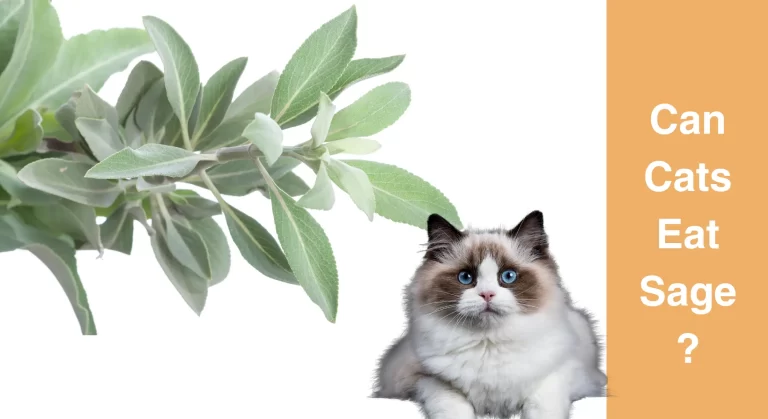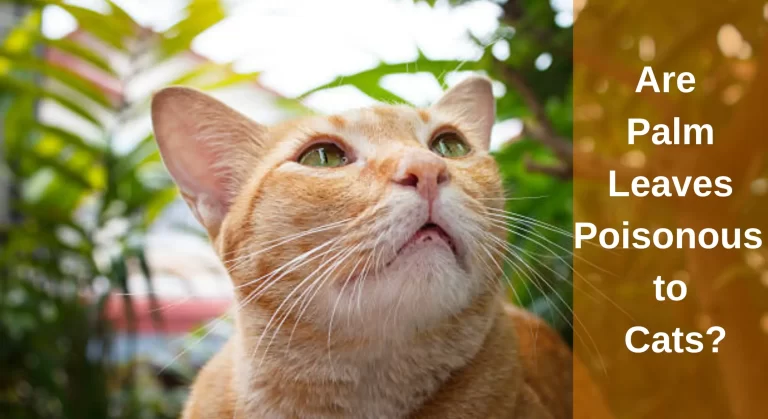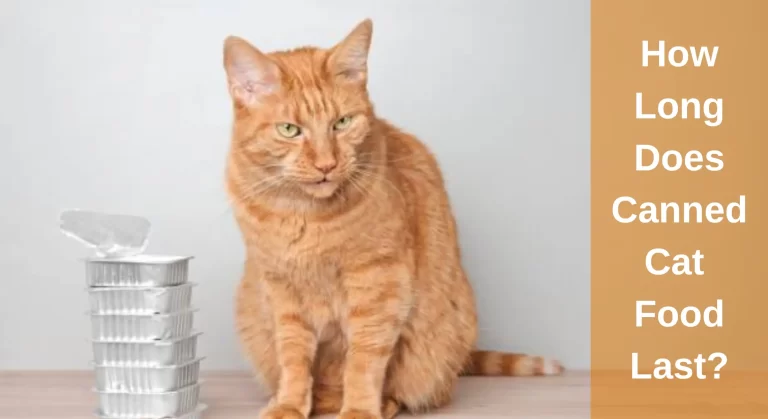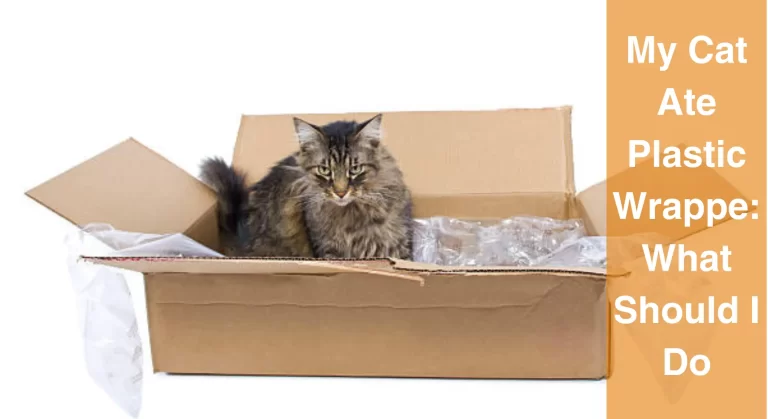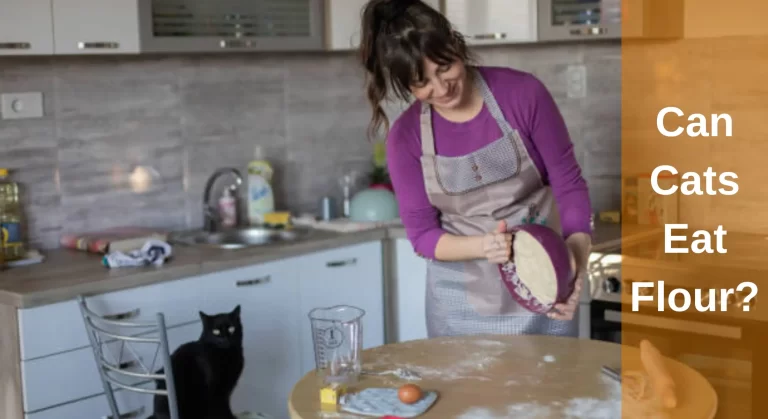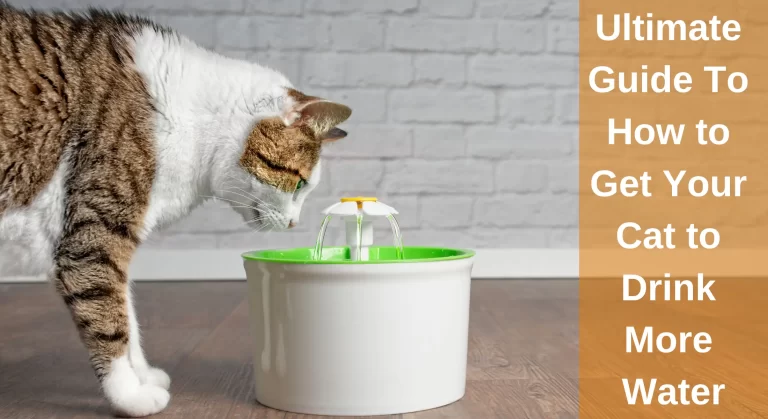Can Cats Eat Wheat? What Every Cat Owner Should Know
It may seem to be appealing to share a meal with your furry friends since they are constantly hungry. On the other hand, based on the foods you’re consuming, cats can’t enjoy every human food. Wheat is ample food for humans and you may want to share it with your cat so that he will get the same nutrition. But you may be thinking if feeding wheat to felines is safe. “Can Cats Eat Wheat?”
Yes, cats are capable of ingesting wheat, but it should be provided in moderation. Wheat is not an essential component of a cat’s diet and should not be relied on as a primary source of nutrition. Feeding them on a regular basis may upset their stomach and causes grains allergies, so it is vital to control their intake and observe any adverse reactions.
However, you might be wondering which wheat-based product is good for your cat and how to know whether they’re allergic to wheat. Don’t fret, in this article, we’ll talk about whether cats can consume foods containing wheat, the benefits or harms of wheat, perfect wheat-based products for cats, symptoms of wheat allergies, and much more!
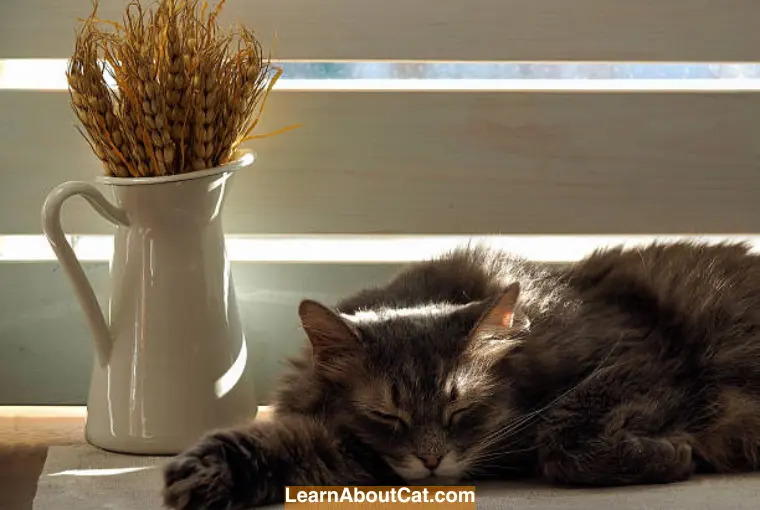
Introduction to Wheat and Its Nutritional Content
Wheat is a type of cereal grain that is widely used in human nourishment as a significant source of carbohydrates and other crucial nutrients. This grain is abundant in vitamins B and E, in addition to several minerals such as zinc, copper, and iron.
Nevertheless, felines possess distinct nutritional needs unlike humans, and it is imperative to recognize the appropriateness of wheat in a feline’s dietary regimen.
Is Wheat Harmful to Cats?
Wheat does not hurt cats, however, cats with gluten intolerance can die from eating it. Wheat protein such as the gluten contained in it can cause allergies in some felines. Cats with food intolerances may develop unsightly and uncomfortable skin conditions.
Your cat’s body reacts excessively to an undesirable protein contained in wheat, which results in an allergic reaction.
While a few cats may be capable of consuming wheat protein without any problems, others may react allergically. That’s why diets without gluten are also created for cats. Protein-rich sources are commonly replaced by gluten in cat food.
To cut costs, several pet food makers load your cat’s diet with low-cost grain components such as wheat gluten.
Check Out: Can Cats Eat Flour?
Do Cats Need Wheat?
No, cats do not need wheat in their diet. Wheat is a grain that is not naturally found in the diet of wild cats. Cats are obligate carnivores, which means that they need to eat meat to survive. Their bodies are designed to digest and absorb nutrients from animal proteins.
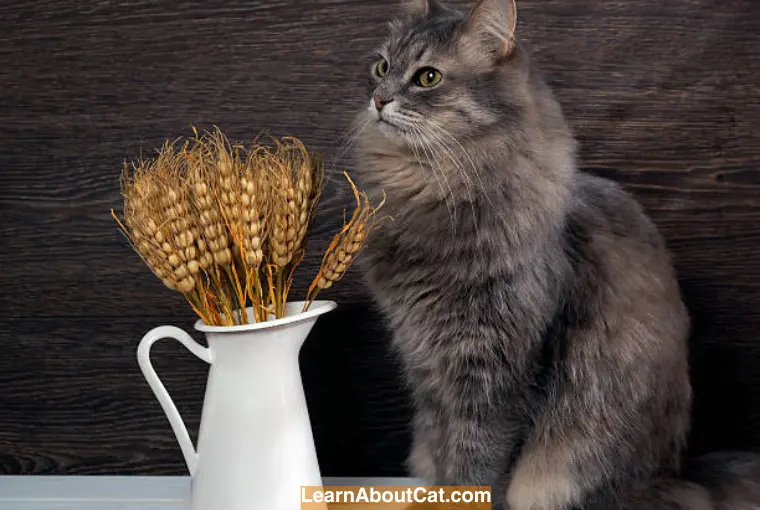
Although it isn’t toxic to cats in limited doses, wheat is a supplier of carbs and offers no dietary advantages to cats.
Some cats may even enjoy eating wheat or wheat-based products as a treat, but it is not necessary for their health or well-being.
Wheat sensitivity or allergy in cats can occasionally result in skin issues or stomach problems. To ensure that your feline is receiving sufficient nourishment, it is best to consult your veterinarians before adding extra foods or components to its meals.
Also, Check Out: Can Cats Eat Goldfish Crackers?
Is Wheat Beneficial to Cats?
As soon as their digestive systems can accept it, cats can take advantage of wheat that is included in their meals. Wheat is a rich source of nutrients such as fatty acids, fiber, proteins, and mineral deposits.
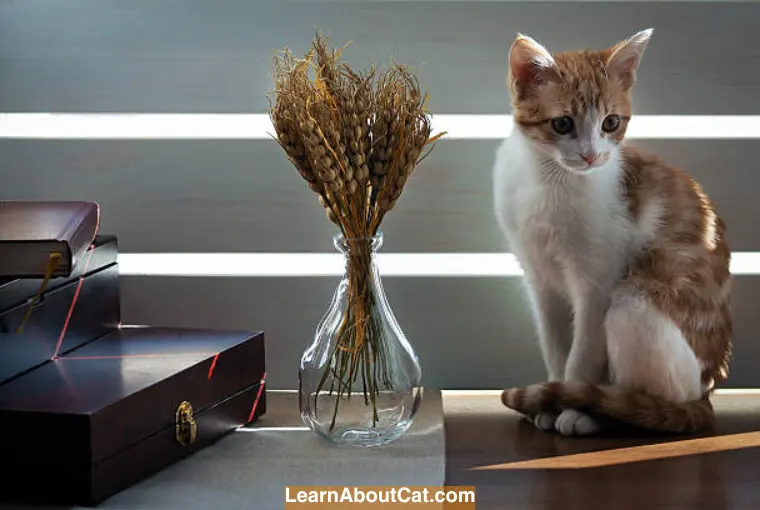
- Fiber: Wheat is a good source of fiber, which can help to keep your cat’s digestive system healthy.
- Vitamins: Wheat is a good source of vitamins B, E, and K. These vitamins are important for your cat’s overall health.
- Minerals: Wheat is a good source of minerals such as magnesium, phosphorus, and zinc. These minerals are important for your cat’s bones, teeth, and muscles.
Wheat contains protein that is simple to absorb and can increase the amount of protein in a meal. However, these benefits can be obtained from other sources, such as meat and vegetables.
Adding wheat to their diet will assist your cat to absorb the nutrition they require for gaining weight or to fulfill their needs if they are lacking in some nutrients.
Find Out: Can Cats Eat Biscuits?
Risks of Feeding Wheat to Cats
Feeding your feline an excess of wheat can expose them to a diverse range of health problems.
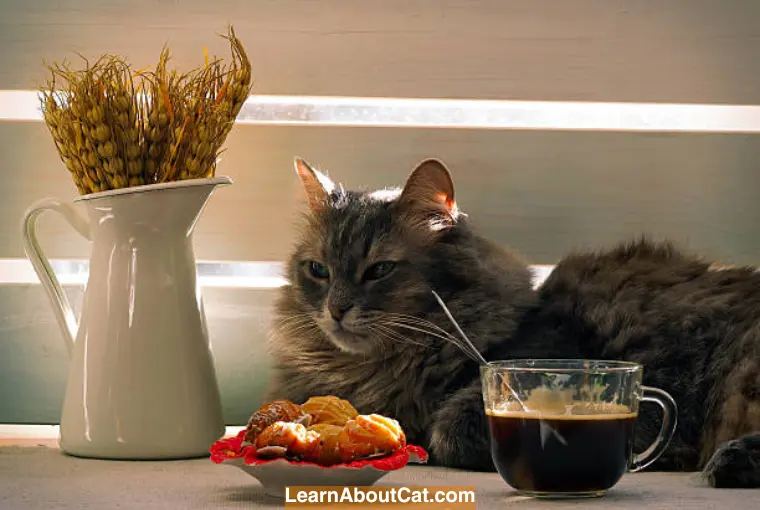
- Allergies: Wheat contains gluten, a protein that can cause allergies in some cats. If your cat has any signs of an allergic reaction, such as itching, vomiting, or diarrhea, stop feeding them wheat and consult with your veterinarian.
- Weight gain: Since wheat comprises of carbohydrates, it can potentially contribute to weight gain in felines. If your cat is overweight or obese, it is best to avoid feeding them wheat.
- Other health problems: Some studies propose that there may be an association between wheat ingestion in felines and certain health problems, such as dilated cardiomyopathy (DCM). However, more research is needed to confirm this link.
Overall, there is no need to feed wheat to cats. There are other, more nutritious options available that can meet your cat’s dietary needs.
Here are some additional things to keep in mind when feeding your cat wheat:
- The amount of wheat in a cat’s diet is important. Too much wheat can lead to weight gain and other health problems.
- The quality of the wheat is also important. Wheat that is high in gluten may be more likely to cause an allergic reaction.
- If your cat has any signs of an allergic reaction to wheat, such as itching, vomiting, or diarrhea, stop feeding them wheat and consult with your veterinarian.
You Might Like to Find Out: Can Cats Eat Doritos?
How to Tell If Your Cat Has a Wheat Allergy? Gluten-Allergy
Wheat isn’t a healthy meal for cats, but still it is utilized in a variety of cat diets and snacks. Some felines experience allergic reactions to this grain or the protein it includes.
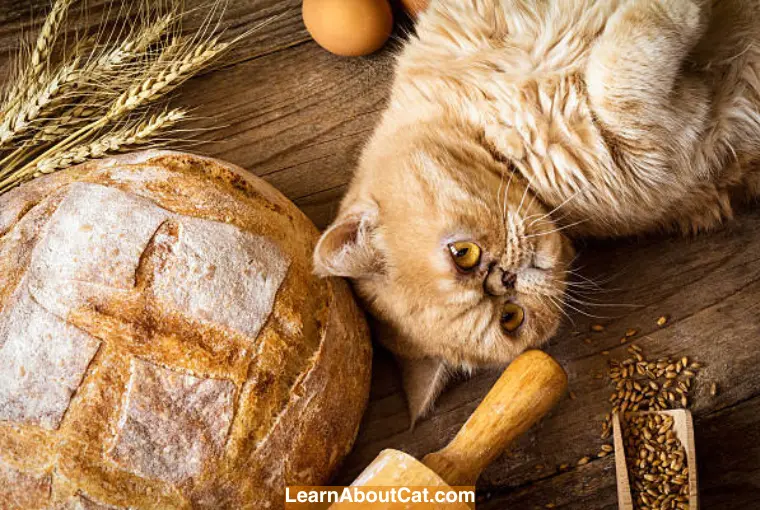
Skin disorders that are unpleasant and painful frequently appear in cats with gluten intolerance. To discover the allergy that is harming your cat, the elimination of various ingredients from the cat’s diet might be necessary.
Even though it takes some time, this technique is the most commonly used and reliable one at the moment for determining which ingredient is responsible for the allergic reaction in cats.
A reactivity of your cat’s immunity to an unwanted protein that is found in the wheat grain results in a wheat allergy. When wheat proteins are not fully digested, the enterocytes mistake any large food pieces such as gluten or wheat bran bits, as hazardous invaders instead of vital nutrients, and immediately begin to attack.
Prolonged exposure to this protein causes these cells’ sensitivities to grow more aggressive and the signs of allergies to worsen.
So, if your feline is having a wheat allergy, it’ll commonly start on the forehead and neck and therefore can develop as signs like:
- Extremely damp dermatitis
- Crumbling papules
- Excess salivation
- Hair fall
- Skin lesions
To check if a cat is having wheat allergies, veterinarians take skin specimens from cats to be studied below a microscope; this procedure is called cutaneous cytology.
Since allergy signs in felines may closely resemble those of other skin conditions such as microbial staph infections, flea infections, and fungus infections. So, in those regions where harmful microorganisms are absent, allergies are more possible to identify.
Despite the fact that cats with hypersensitivity can undergo both subcutaneous and blood testing, these methods are often not thought to be accurate for identifying wheat allergies.
The elimination diet is the benchmark for veterinarian detection of allergic reactions that are induced by wheat.
Interesting Reading: Can Cats Eat Pork?
Are Cats Allergic to Wheat Litter?
Wheat litter allergies are uncommon in cats. Instead, wheat litter is frequently considered a top option for allergenic breeds that benefit sick, delicate, or healing felines.
It may occasionally cause an allergic response if there is aflatoxin mold mixed in it. Your cat may have rashes, stomach problems, and asthma as a reaction when she comes in contact with the aflatoxin-mixed wheat litter.
Cats Can Usually Eat Some Wheat Without Complications
Cats are not poisoned by wheat. Wheat does include some nutrients that can assist balance a cat’s diet even if it is not essential for a healthy diet. When it comes to cats’ digestive system, their digestive system may benefit from the fiber in wheat.
But, consuming wheat in excess amounts might result in issues like diarrhea and vomiting due to its gluten protein.
You will discover that a few of the components in marketed cat food contain wheat. Moreover, barley, maize, oatmeal, and rice are additional grains that can be featured in cat meals.
But, these aren’t the essential components of cat food. Premium cat food must contain protein as the primary ingredient which is the most essential part of their diet and health.
Why Can’t Cats Eat Only Wheat?
Wheat could be enjoyable for cats and offer some advantages, yet it can’t completely replace other foods in their nutrition. Cats don’t get all they require from wheat, so it’s preferable to fully cut it out of their menu than provide it to them only occasionally.
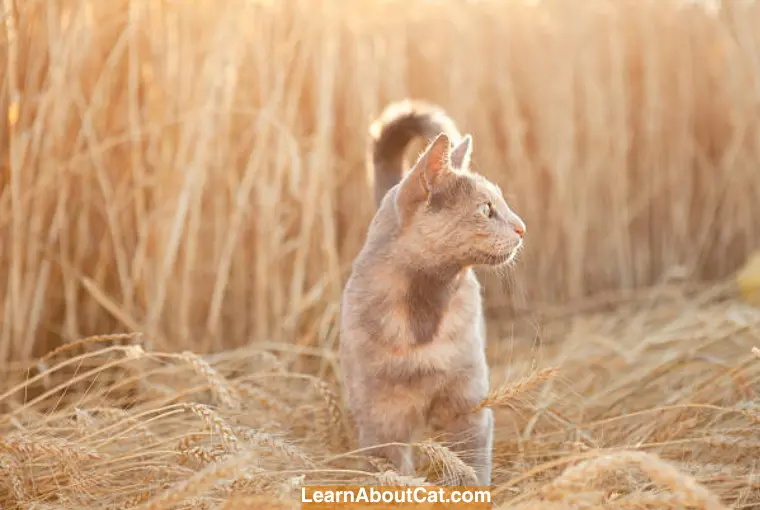
The fact that taurine is crucial to cats‘ life is the main reason why they cannot survive solely on wheat or other grains. An amino group called taurine doesn’t exist in cats’ regular diets.
The animal meat that cats consume provides them with taurine. Taurine should be consumed frequently by cats in order to maintain their wellness because cats’ systems can’t absorb it for very long. Cats require taurine for the aforementioned purposes:
- Healthy vision – cats risk going blind if their taurine levels are too low.
- Optimal digestion
- Cardiac muscle performance
- Fetus growth
- Strong immune response
Wheat Products That Are Okay for Cats
As a little snack, a few wheat products are preferable to other foods for cats. Your cat can enjoy the following wheat products sometimes:
- Whole-grain bread
- Rough bread
- Wheat-based pretzels
- Complete-grain pasta
- Pumpernickel
Your cat must only eat completely baked whole wheat items. The raw dough has the potential to result in significant issues and possibly necessitate an urgent trip to the vet.
Don’t feed your cat wheat-based food constitute the majority of its meal. There is plenty of additional snacks and foods designed especially for cats.
Wheat Products That Cats Should Never Eat
Since most wheat products are processed, enhanced, or used to make unhealthy foods, your cat must never consume them. For instance, pretzels are manufactured from white flour, which doesn’t include any nutrition that a feline could use.
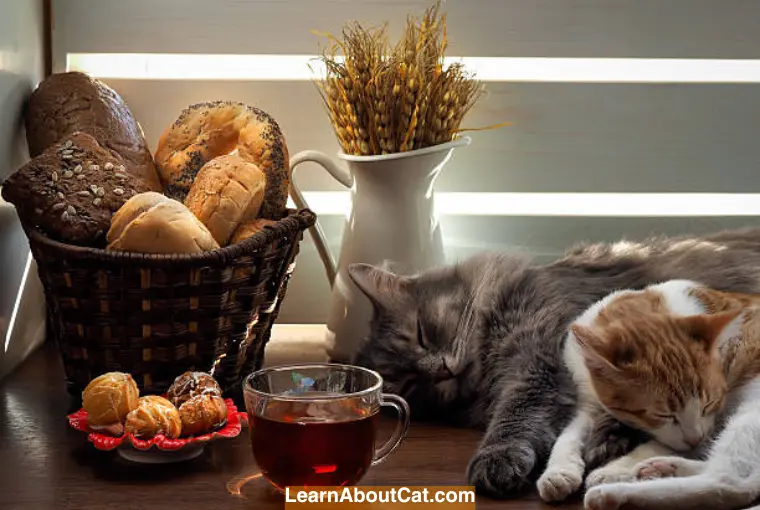
So, this isn’t a suitable choice for cats. While there is no recognized danger of cats getting elevated blood pressure from eating a pretzel’s salt concentration, the white flour utilized to produce pretzels provides no nutritive benefits to cats.
The following list of wheat products mustn’t, or at the very least, be given to cats:
- Sliced bread
- Ritz croutons
- Pizza dough
- Italian bread
- Several other baked items, such as cakes, biscuits, and cupcakes
These foodstuffs aren’t the best for a cat’s nutrition, even though they are produced from whole wheat flour. The fats and spices in several wheat items, including crisps, are unhealthy for your feline to consume. Syrup, milk, and oils are added to biscuits, cupcakes, and pastries.
Moreover, most wheat products contain artificial ingredients. All of these components aren’t good for your cat. The majority of cat owners never give their cats any wheat products because of all these extra additives.
Frequently Asked Questions
Can cats eat whole wheat?
Whole wheat is neither an essential nor advised component of a cat’s nutrition, despite the fact that some cats might sometimes appreciate tiny amounts of it. The consumption of wheat might cause stomach discomfort, itchy skin, or other medical problems in cats because most cats are allergic or sensitive to them. To best suit your cat’s dietary demands, it is generally preferable to use a high-end, grain-free cat meal.
Can cats eat dried wheat?
It is not essential or advised for cats to eat dry wheat, despite the fact that it may not be poisonous to them. Grain intolerance or allergies, such as those to wheat, can affect some cats and result in gastrointestinal distress, skin rashes, or other health problems.
Can we give wheat roti to cats?
No, you can’t give wheat roti to your cat as it may cause grain allergies to your cat. However, some cats may enjoy it while others may face difficulty digesting the gluten protein in wheat roti. Moreover, even if they consume roti happily, they may face gastrointestinal issues due to gluten indigestion.
Can cats eat wheat bread?
Even though wheat bread isn’t poisonous to cats, it isn’t a good choice for them to consume as it’s packed with carbohydrates and deficient in the nutrition that cats require to flourish. High-carbohydrate diets for cats can result in being overweight, hyperglycemia, and other health issues.
Is it safe for cats to eat wheat thins?
Yes, cats can eat pure Wheat Thins in moderate amounts. But you can’t feed flavored Wheat Thins as it contains more flavoring ingredients than carbohydrates. The best option is to choose a cat-specific meal free of allergens or additives that could lead to gastrointestinal issues.
Final Words
Although cats can consume wheat, their diets don’t need it for good health. If cat food has a substantial proportion of protein, it will provide them with all the nutrition they require as compared to wheat. If wheat is included in the foodstuff, your cat may consume it even though they’re not allergic to it. Although it may have a few advantages, still, it cannot completely replace their nutrition.
Bring your cat to the veterinarian for a checkup if you observe any allergic symptoms in them. Once identified, food intolerances in cats are simple to treat. Just be sure the goods you give your feline are made completely of whole wheat and don’t contain any additional ingredients.
However, if your cat doesn’t have a gluten intolerance, it can occasionally munch on wheat-based products like crisps or bread. But make sure that you should only give them these foods as a special treat.
Related Posts:
Who is Isabella?
My name is Isabella, and I am a dedicated and knowledgeable cat enthusiast. With years of experience caring for cats and a deep love for felines, I made a mission to help other cat lovers navigate the challenges of cat ownership.

